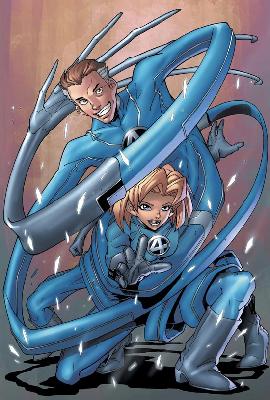Gunk and Gender: Preliminary Filth Thoughts
Jim Henley wanted to know what women think of The Filth. I finished it last night and I think it’s Grant Morrison all right, and you’re not going to get much more out of me tonight, because my head is rebelling and I need medicine that works or, failing that, sleep. Ok, and what I need most of all is pictures of little kids with superimposed ants’ heads. Lots. I very much need this. I suppose pictures of rotund fellows with eye-bellies would be acceptable, at least the utopian sort, but not as good.
Anyway, the reason Jim Henley wants to know what women think is that he’s worried (or perhaps not worried) that The Filth is a guy thing. I don’t have a good answer to that question. I’m not comfortable with the idea that women deal with filth and bodies more or earlier than men (speaking of course in huge generalizations) do. Yeah, yeah, we’ve got menstruation and the awkwardness of breasts and having to deal with being an object of attraction, and I’ve managed to make my peace with the first of those things at least. But even as a young adolescent when I wanted to be anything but feminine, I wouldn’t have wanted to have to deal with random erections and wet dreams and all that hideously sexual guy-stuff. Also booger jokes. Ugh.
I think maybe a keener difference lies in ownership of sexuality, though this probably relies on even grander generalizations. Especially when it comes to sexuality, men are trained to think they’re in control of themselves. I don’t know to what extent they believe this, but that seems to be the paradigm, and that makes it really difficult to have sexual assault training for men (and here I’m talking about college guys because this is all I’ve had to deal with) who think they could never be assaulted and are sure they and all their friends are nice guys who would never assault anyone else. One way people get around this problem is with a horrible, offensive program that says to men, “Think how much you’d hate yourself if a man raped you! And imagine how you would feel if someone raped your girlfriend!” If the only way to remind men that they’re not in control is by calling on their ick-factor homophobia or urging them to be mindful of people they’re supposed to own, that’s not a good state of affairs. But that’s to some degree what’s going on in The Filth. Male desire (and I think Jim’s right that women aren’t fleshed out in the story, but mostly in that they’re not protagonists even of their subplots much) has gotten out of control. Desire for control is taking over the world, and it’s up to the members of The Hand to be Super-Men, to assert control over the sexually power-mad men. Whether we’re dealing with bad guys releasing hordes of super sperm that seem to destroy rather than impregnate their targets or goodish guys who don’t bother to close the window when masturbating to copious porn and don’t notice the porn in the street, or even possibly unreal has-beens who while away the hours watching their wives engage in hardcore sex with all their old friends and foes, we’re dealing with some ugly stuff and unpleasant guys. So what makes this a Guy Book? Is it because it’s a chance to explore otherwise hidden frailties while still sympathizing with the powerful main character(s)? Is it because it’s a chance to say, “Hee! Erection jokes! Prison rape jokes!” without noticing that their unqualified acceptance isn’t really supported by the text?
I dunno. I’m sure that’s not why Jim liked it, or Dave Intermittent or David Fiore or Steven, but I’m not sure if they have peculiarly gendered responses. I liked The Filth, too, though I think I prefer the pretentiousness of The Invisibles. That I’m not entirely sure may be a sign I’m skewing toward the center of the mind/body scale, our Little Rose growing up! Not hating my body was an important, difficult lesson to learn, but I still don’t love or privilege it either.
And thinking of hating my body brings me back to my impending migraine and thus departure, with assurances that more commentary will come in time. That Animal Man stuff is still in my head, too, while I’m making rash promises, but no more for tonight nor tomorrow, when I watch my brother test his physicality in the all-star game, the end of his high-school football career. He spent four years wallowing in sweat and bruises and bashing, and that’s all Filth to me. I’ll be the bitchy one aching in the bleachers.
